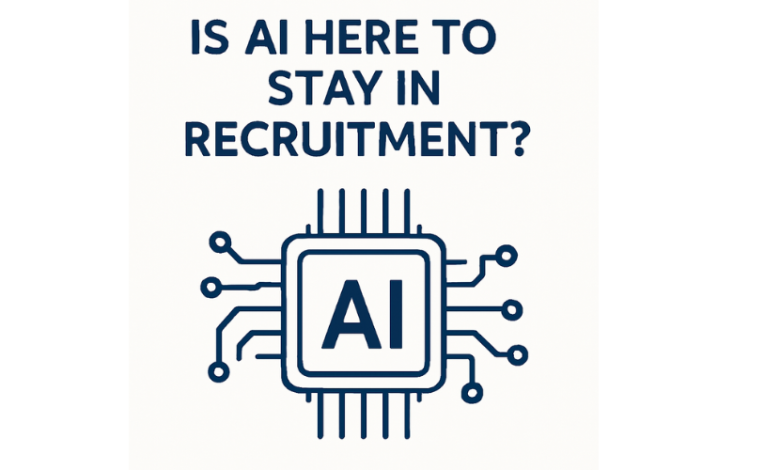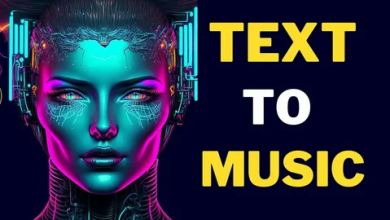
The recruitment/HR industry has undergone major changes in recent years, with artificial intelligence (AI) platforms now widely available helping recruiters supercharge their productivity. From automating repetitive tasks to enhancing candidate matching, AI is reshaping how organizations find and hire talent. But is this technological revolution a passing trend, or is AI in recruitment here to stay? Let’s explore the evidence, benefits, challenges, and future of AI-driven hiring, including the role of one-way interviews.
In 2025 alone, HR-tech has witnessed a robust resurgence in venture funding, with global investments hitting ~$2 billion across 236 deals as of mid-September, signaling a 45% year-over-year rally in the third quarter alone and positioning the industry to surpass the $2 billion total from all of 2024. This influx reflects investor enthusiasm for AI-driven innovations in talent acquisition, workforce analytics, and employee experience platforms, exemplified by mega-rounds like Rippling’s $450 million Series G at a $16.8 billion valuation and Mercor’s $100 million Series B. While deal counts are down slightly from prior years—indicating larger average round sizes amid a maturing market—the momentum underscores HR startups’ pivotal role in addressing evolving workplace challenges, from remote hiring to skills-based matching, with mergers and acquisitions hitting record highs to fuel further consolidation.
The Rise of AI in Recruitment
AI has become deeply integrated into modern recruitment processes, powering tools that streamline hiring at scale. Applicant Tracking Systems (ATS) like Workable and Greenhouse, AI-enhanced platforms like LinkedIn Recruiter, and specialized tools like Mya Systems for conversational AI are now commonplace. These systems leverage machine learning, natural language processing (NLP), and predictive analytics to handle tasks such as:
- Resume Screening: AI scans resumes for keywords, skills, and qualifications, filtering out unqualified candidates in seconds.
- Candidate Sourcing: Algorithms scour job boards, social media, and professional networks to identify passive candidates.
- Skills Assessments: AI-driven tests evaluate candidates’ technical and soft skills before human recruiters step in.
- Chatbots and Virtual Assistants: Tools like Paradox’s Olivia engage candidates, answer questions, and schedule interviews 24/7.
- One-Way Interviews: AI-powered platforms like HireVue or Spark Hire enable candidates to record video responses to pre-set questions, which AI then analyzes for verbal and non-verbal cues, saving recruiters time while assessing candidate suitability.
A 2023 study by the Society for Human Resource Management (SHRM) found that 43% of companies using AI in recruitment reported a significant reduction in hiring time, while 67% noted improved candidate matching. These numbers reflect AI’s ability to process vast datasets quickly, enabling recruiters to focus on strategic tasks like building relationships and assessing cultural fit.
The Case for AI’s Staying Power
Several factors suggest AI is not just a trend but a permanent fixture in recruitment:
- Efficiency and Scalability: In high-volume hiring scenarios—think retail, tech, or healthcare—AI processes thousands of applications with speed and precision unattainable by humans. For example, Unilever reported saving 70,000 hours of manual work annually by using AI to screen candidates, including through one-way interviews, according to a 2022 case study.
- Improved Candidate Matching: AI algorithms analyze patterns in job descriptions, candidate profiles, and historical hiring data to identify the best fits. This data-driven approach often outperforms traditional methods, especially for roles requiring specific technical skills.
- Bias Reduction (with Caveats): AI can minimize human biases in initial screenings, including one-way interviews, by focusing on objective criteria like skills and experience. For instance, AI analysis of one-way interview responses can prioritize content over subjective factors like appearance, though careful design is needed to avoid perpetuating biases embedded in training data.
Challenges and Criticisms
Despite its advantages, AI in recruitment faces hurdles. One-way interviews, for example, can feel impersonal, potentially deterring candidates who value human interaction. Critics also argue that AI risks dehumanizing recruitment by over-relying on algorithms, which may overlook unique candidate traits—like creativity or resilience—that don’t neatly fit data models. Privacy concerns are another issue, especially with one-way interviews, where candidates may worry about how their video data is stored or used. Moreover, if AI systems are trained on biased data, they can inadvertently perpetuate inequities, such as favoring candidates from certain demographics.
The Future of AI in Recruitment
The trajectory of AI in recruitment points to deeper integration. Advancements in NLP and emotional AI could make one-way interviews more sophisticated, with systems better equipped to assess soft skills like empathy or leadership. Meanwhile, hybrid models—combining AI efficiency with human judgment—are likely to dominate, ensuring that technology enhances rather than replaces the human touch. As labor markets tighten and competition for talent grows, AI’s ability to scale and adapt will cement its role.
Conclusion
AI in recruitment, similarly to other industries like private equity and investment banking, including tools like one-way interviews, is not a fleeting trend but a transformative force here to stay. Its ability to save time, improve matching, and reduce bias (when designed thoughtfully) makes it indispensable, particularly for high-volume hiring. However, challenges like candidate experience, privacy, and algorithmic bias require ongoing attention. By blending AI’s efficiency with human oversight, organizations can create a recruitment process that is faster, fairer, and more effective—ensuring AI remains a cornerstone of talent acquisition for years to come.



